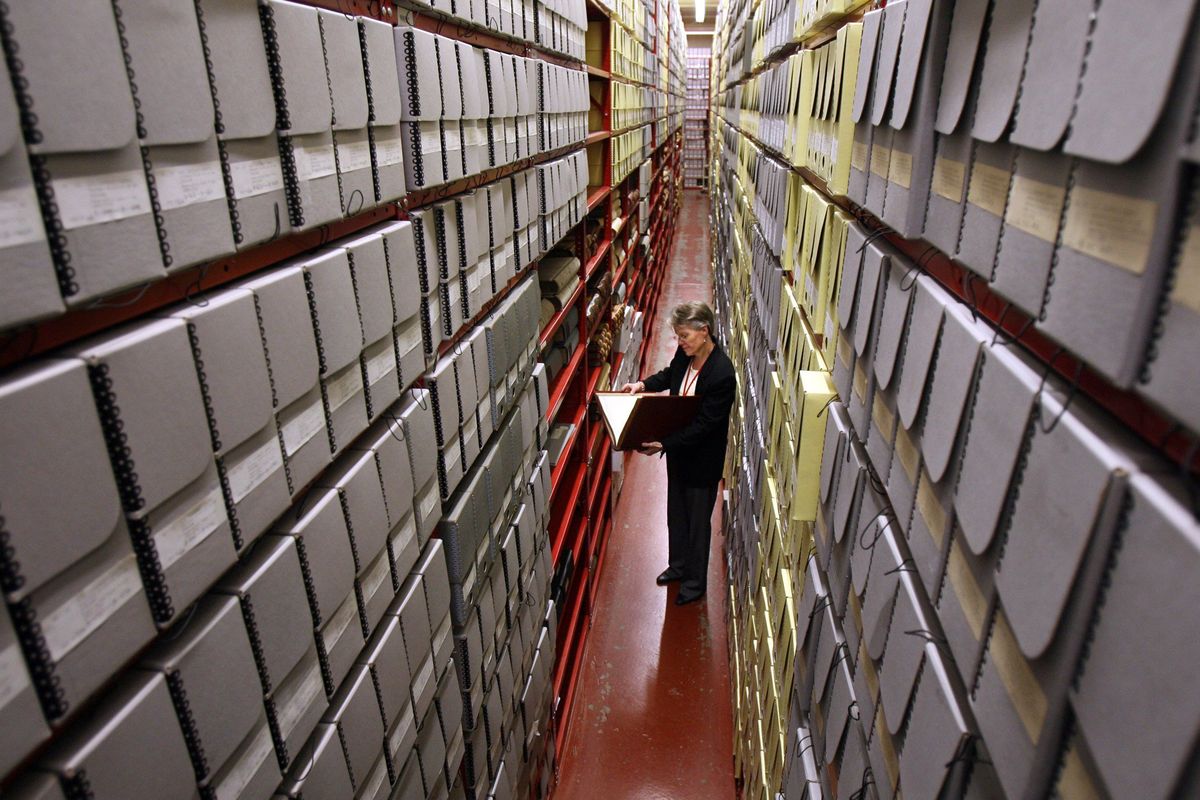Tribal leaders, lawmakers hail Biden administration decision to halt sale of National Archives facility in Seattle

WASHINGTON – The Biden administration on Thursday halted the sale of the National Archives and Records Administration facility in Seattle, drawing praise from tribal leaders and members of Congress who had warned relocating the massive building’s contents would make it much harder for tribes, researchers and state agencies to access critical records.
The move reversed a Jan. 24 decision by the Office of Management and Budget, part of the Executive Office of the President, to sell the building and move its contents to sites in Missouri and Southern California. Critics of the earlier decision – including a bipartisan group of Northwest lawmakers – took aim at OMB’s lack of consultation with tribes, something the agency’s top official noted in a letter announcing the reversal.
“Tribal consultation is a priority for this Administration,” acting OMB Director Shalanda Young wrote. “But the process that led to the decision to approve the sale of the Federal Archives and Records Center is contrary to this Administration’s tribal-consultation policy, and I am accordingly withdrawing OMB’s approval of the sale of that facility.”
Rodney Cawston, chairman of the Colville Business Council, said it is essential for tribes that the records stay in the region.
“Tribes, we really rely on those records,” he said. “We use them especially in legal research, and just for the history of our tribes, and we rely on being able to be there to do that research ourselves. If we don’t, then we’d have to rely on somebody else, several states away, to do the research for us.”
Sen. Maria Cantwell, D-Wash., led a bipartisan group of 25 lawmakers from Washington, Idaho, Oregon and Alaska in a March 11 letter calling on OMB to stop the impending sale of the building, located on 10 acres in northeast Seattle.
“It’s a very positive step,” Cantwell said of Thursday’s news. “The administration made tribal consultation a big priority at the beginning of the year, and this is just a follow-through.
“They promised that they were going to do consultation, and my guess is that somebody said, ‘Well, here you go, this is where consultation didn’t happen, and now this is a mess and you really don’t have a good solution.’”
The letter urging the Biden administration to reverse course included nearly every member of Congress from the Northwest, including Idaho’s entire congressional delegation and Spokane GOP Rep. Cathy McMorris Rodgers.
“Cathy was glad to hear that this facility will remain in our region,” spokesman Kyle VonEnde said. “The reality is that the tribes across Washington state were not consulted about the sale of the NARA facility, and she strongly supports the decision to reverse course.”
Adding to the full-court press against the move, Sen. Patty Murray, D-Wash., introduced legislation March 25 to stop the building’s sale along with Cantwell, Alaska Republican Sen. Lisa Murkowski and Sens. Ron Wyden and Jeff Merkley, both Oregon Democrats.
“While this process never should have begun in the first place without Tribal and local consultation, I’m glad that OMB has listened to local Tribes and reversed their decision to approve the sale of the Seattle Archive building,” Murray said in a statement Thursday. “I want to thank everyone who made their voice heard throughout this process, and be clear I will continue working to ensure the generations of artifacts and history stored in the Seattle facility will remain accessible to stakeholders across the Pacific Northwest.”
Washington Attorney General Bob Ferguson, a Democrat, sued the federal government Jan. 4 to stop the sale, which was set in motion under the Trump administration. Twenty-nine tribes joined the lawsuit, including the Spokane Tribe.
Carol Evans, chairwoman of the Spokane Tribal Council, said the request tribes have made – and the lesson the federal government should learn – is straightforward.
“Tribal consultation didn’t occur before the decision to do away with that facility was made,” Evans said. “Federal entities need to consult with tribes when they make changes that impact tribes.”
Cawston, who previously managed the Colville Confederated Tribes’ archives and records program, said having the records within the state also gives Northwest tribes more control over what happens when documents are at risk of being disposed under the National Archives and Records Administration’s disposition schedule.
The Seattle facility, he said, contains one-of-a-kind records documenting the history of Indigenous people in the Northwest.
“We know that a lot of our elders did oral histories with a lot of different agencies,” Cawston said. “That’s really important for us to see that, and to be able to read it for ourselves and really see what our ancestors went through to try to protect everything for the future generations – our legal rights, our culture, our history, our identities.”
Cawston said while he is happy the status quo will be preserved at the Seattle facility, the Biden administration could do more to improve access to the archives, including digitizing records. If they must be relocated eventually, he said, the federal government should consider moving them to Spokane or another location in the region.